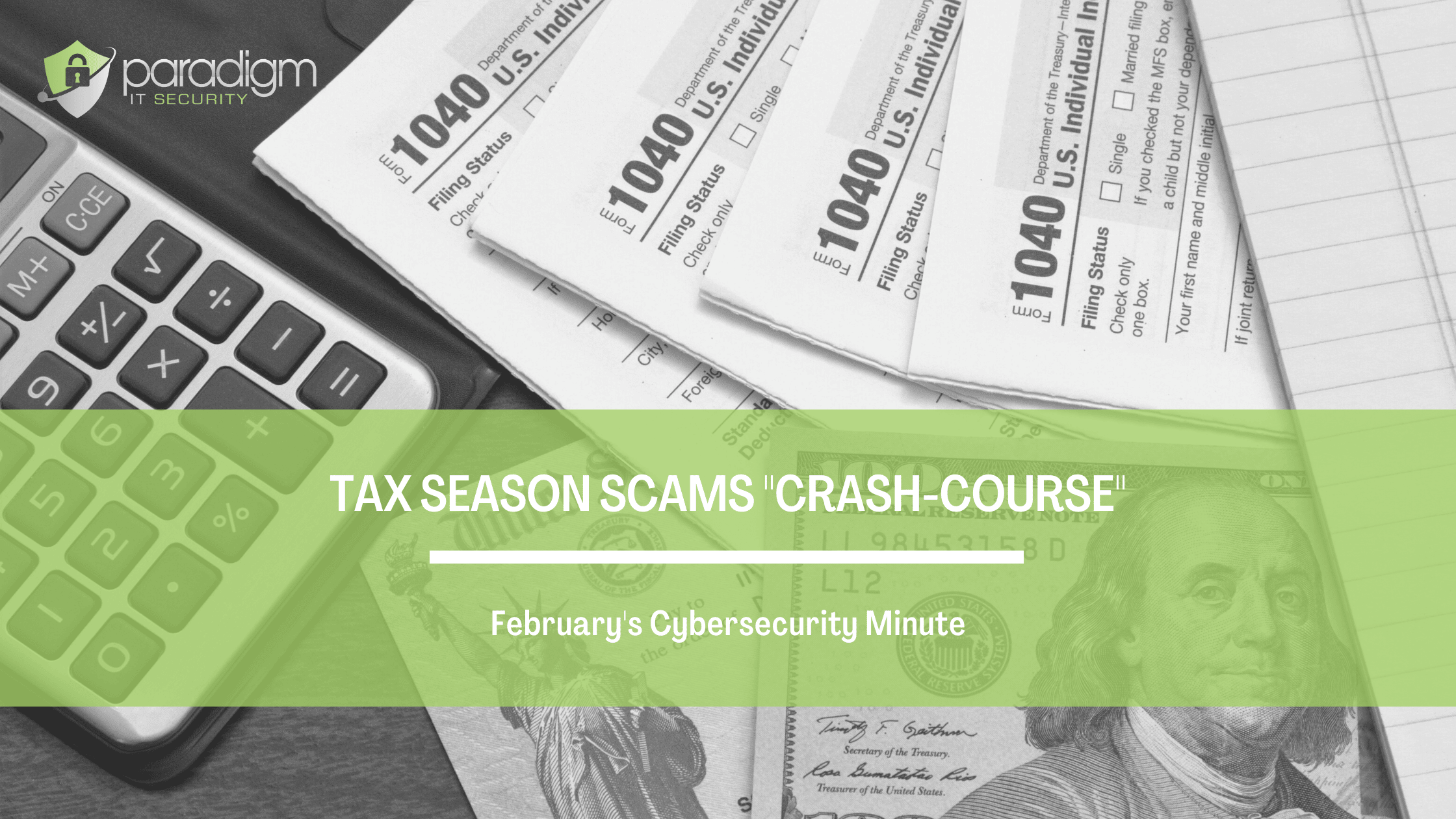Tax Season Scams “crash- course”
As you may be aware, tax season is here and cybercriminals are more than ready to capitalize on the vulnerable and unaware. But that doesn’t have to be you, that is why we are titling this month’s Cybersecurity Minute article Tax Season Scams “crash-course”; and sharing some common tactics used by cybercriminals to be vigilant for.
- Refund and stimulus payment theft – Criminals have tried to steal people’s stimulus and refund payments through fraudulent text messages, calls, and emails, as well as by swiping checks from mailboxes.
- Unemployment fraud – Thieves have claimed state unemployment compensation by stealing taxpayers’ personal information. You might not realize you’ve been a victim until the IRS sends you a Form 1099-G stating that you received unemployment pay that you need to report on your tax return—when you never actually received that pay.
- Phishing – When emails, websites, text messages, or social media pretend to be from the IRS to entice people, businesses, and tax professionals to divulge personal or financial information, that’s a form of phishing. DO NOT click on links or download attachments included with any such communication.
- Threatening phone calls – Criminals posing as IRS agents threaten people with arrest, deportation, license revocation, or Social Security number cancellation if they don’t make an immediate payment.
- Ransomware – This malicious software infects the victim’s computer, then makes its data inaccessible. The scammer demands payment to restore access to locked files. This scam often targets businesses and institutions, so it’s important to be alert to potential fraud at work and home.
- Tax-debt–resolution mills – These outfits charge you money under the pretense that they can get you an offer in compromise to settle your tax debt with the IRS for pennies on the dollar.
Preventive tips
- Make sure that you engage the assistance of a reputable professional for tax preparation purposes.
- Always ask questions on what measures they have in place to help protect your data.
- Ask and have a clear understanding of what to expect as it relates to notifications and messaging. Whenever in doubt, don’t assume, verify.
What to do if a possible scammer contacts you
If you receive any communication that claims to be from the IRS, here’s what you should do.
Emails- Any email that says it is from the IRS is fraudulent. Please DO NOT respond to the email, click on any links, or download any attachments. Forward the message to [email protected], then delete the original email.
Text Messages- The IRS does not send text messages. If you receive a text message that claims to be from the IRS, it’s a scam. Do NOT reply answer the text message.
Phone Calls- Do not assume that a phone caller claiming to be from the IRS is legitimate, even if your caller ID shows a Washington, D.C., area code or says, “Internal Revenue Service.” These details can be spoofed.
Don’t give the caller any information. Say you cannot talk now and will call back shortly. Do not ask for a phone number; instead, ask for the caller’s name and badge number. Hang up, then immediately report the call to the Treasury Inspector General for Tax Administration.
Letters- Even though the IRS communicates by letter, a letter from the IRS may be something other than legitimate. Scammers can send fake IRS notices by mail, which can be challenging to authenticate.
Be suspicious if the letter asks for money. A letter asking you to make out a check to the IRS is a scam; an accurate IRS payment must be made to the “United States Treasury.”
You can even call the IRS directly to inquire about a letter’s legitimacy. Find the correct phone number in the help section of IRS.gov.




